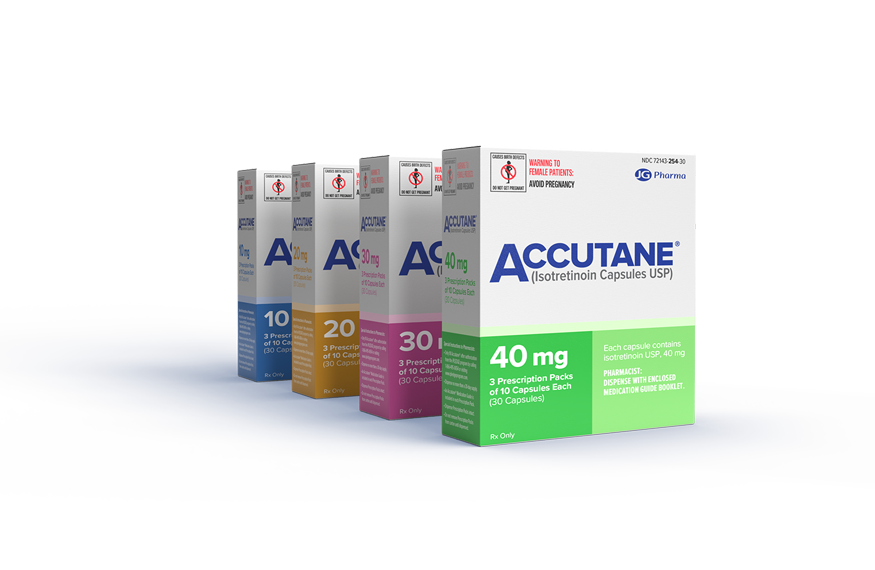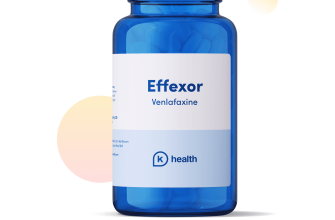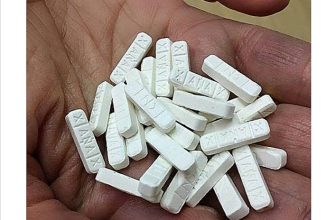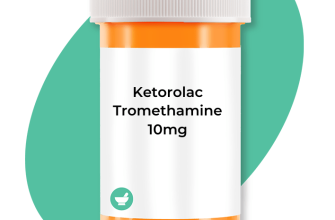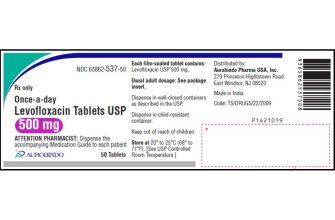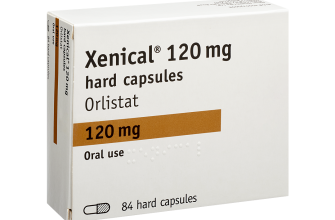Need Accutane? Understand the process. First, schedule a consultation with a dermatologist. This is non-negotiable; Accutane requires strict medical supervision due to potential side effects. Your doctor will assess your skin condition and determine if Accutane is the right treatment for you.
During your appointment, discuss your medical history thoroughly. Mention any pre-existing conditions, medications you’re currently taking, and any allergies. Accurate information ensures your safety and the effectiveness of the treatment. Your dermatologist will explain the potential risks and benefits, outlining the iPledge program requirements. This program is mandatory for Accutane prescriptions in the US and involves regular blood tests and pregnancy tests.
Once approved, your dermatologist will write you a prescription. You’ll need to fill it at a certified pharmacy. Be prepared for potential cost implications; Accutane is not cheap. Explore insurance coverage options to help manage expenses. Remember to strictly follow your doctor’s instructions regarding dosage and monitoring.
Important Note: Never attempt to purchase Accutane from unauthorized online sources. Counterfeit medications pose significant health risks. Prioritize your safety and health by working exclusively with licensed medical professionals and pharmacies.
- Accutane Buy US: A Comprehensive Guide
- Insurance Coverage and Cost
- Finding a Dermatologist
- The iPledge Program
- Managing Side Effects
- Alternative Treatments
- Understanding Accutane’s Prescription Requirement in the US
- The Dangers of Buying Accutane Online Without a Prescription
- Finding a Dermatologist for Accutane Treatment in the US
- Navigating the Insurance Coverage Process for Accutane
- Potential Side Effects and Monitoring During Accutane Treatment
- Alternative Treatments for Severe Acne
- Lifestyle Changes
- Medical Treatments
- Alternative Therapies (Consult your doctor before trying these):
Accutane Buy US: A Comprehensive Guide
Seek Accutane only through a dermatologist. This ensures you receive a proper diagnosis, personalized treatment plan, and ongoing monitoring for potential side effects. Ignoring this advice risks ineffective treatment and potential harm.
Insurance Coverage and Cost
Contact your insurance provider directly to determine your Accutane coverage. Many plans cover isotretinoin, but coverage levels vary. Ask about pre-authorization requirements. Prepare for potential out-of-pocket costs; generic options might be more affordable than brand-name Accutane.
Finding a Dermatologist
Use online search engines to locate dermatologists in your area who treat acne. Check online reviews and consider patient testimonials. Schedule consultations with multiple dermatologists to discuss your treatment options and find a doctor you trust. A good doctor-patient relationship is crucial for successful treatment.
The iPledge Program
Understand the iPledge program requirements. This program mandates pregnancy tests and birth control measures for women taking Accutane. Men must also adhere to specific guidelines. Complete all necessary steps to ensure you can receive the medication legally and safely. Non-compliance results in medication denial.
Managing Side Effects
Discuss potential side effects with your dermatologist before starting treatment. Common side effects include dry skin, lips, and eyes; these are usually manageable with appropriate moisturizers and lip balms. Report any concerning side effects promptly to your dermatologist. Early intervention may mitigate potential issues.
Alternative Treatments
Explore alternative acne treatments if Accutane isn’t suitable for you. Your dermatologist can discuss other options, such as topical retinoids, antibiotics, or light therapy. These may be suitable for less severe acne. Combine these with proper skincare for optimal results.
Understanding Accutane’s Prescription Requirement in the US
Accutane, or isotretinoin, requires a prescription due to its potent effects and potential side effects. This isn’t merely a regulatory hurdle; it’s a safety measure.
Dermatologists closely monitor patients on Accutane due to the risk of serious side effects, including birth defects. The iPLEDGE program, a risk management program, is mandatory in the US. This program requires blood tests, pregnancy tests, and adherence to specific guidelines.
Before prescribing Accutane, a dermatologist will conduct a thorough evaluation of your medical history and current skin condition. They’ll discuss potential benefits and risks, explaining the iPLEDGE program requirements in detail.
Finding a dermatologist specializing in acne treatment is crucial. These specialists have expertise in managing Accutane therapy and addressing potential complications.
| Step | Action |
|---|---|
| 1 | Schedule a consultation with a dermatologist. |
| 2 | Discuss your acne concerns and medical history. |
| 3 | Understand the iPLEDGE program requirements. |
| 4 | Follow your dermatologist’s instructions carefully. |
| 5 | Attend all scheduled follow-up appointments. |
Purchasing Accutane without a prescription is illegal and dangerous. Counterfeit medications may contain incorrect dosages or harmful ingredients. Always prioritize your health and safety by obtaining Accutane through a legitimate prescription from a licensed dermatologist.
The Dangers of Buying Accutane Online Without a Prescription
Don’t risk your health. Purchasing Accutane online without a prescription exposes you to serious hazards. Counterfeit medications are prevalent; these pills may contain incorrect dosages, harmful ingredients, or no active drug at all.
Severe side effects are a significant concern. Accutane requires careful monitoring by a dermatologist due to the potential for liver damage, birth defects (in women), and inflammatory bowel disease. Without professional oversight, these risks significantly increase.
Lack of proper guidance jeopardizes your treatment. Your doctor adjusts dosage based on your individual needs and response. Self-medicating can lead to ineffective treatment, prolonging acne and potentially causing harm.
Legal ramifications exist. Buying unapproved medications is illegal in many countries and carries potential penalties. Protecting yourself involves adhering to regulations and obtaining prescriptions legitimately.
Always consult a dermatologist for safe and effective acne treatment. They can assess your skin, discuss treatment options, monitor for side effects, and ensure you receive the right medication. Your health is paramount; prioritize safe practices.
Consider the long-term consequences before risking your well-being. Your dermatologist is your best resource for acne treatment.
Finding a Dermatologist for Accutane Treatment in the US
Begin your search using the American Academy of Dermatology’s online physician finder. Filter by location and specify “dermatology” as the specialty. This tool helps you locate board-certified dermatologists near you.
Check online reviews on sites like Healthgrades, Vitals, and Zocdoc. Read patient experiences to gain insights into a dermatologist’s communication style, wait times, and overall approach to patient care. Pay attention to reviews mentioning Accutane specifically.
Consider scheduling consultations with several dermatologists. This allows you to compare their approaches to treatment, their comfort level with Accutane, and their willingness to answer your questions thoroughly. Ask about their experience prescribing Accutane, their understanding of the iPLEDGE program, and their monitoring protocols during treatment.
Confirm the dermatologist accepts your insurance. Accutane treatment can be costly; verifying insurance coverage beforehand prevents unexpected financial burdens. Inquire about payment plans or financing options if needed.
Prioritize communication. Choose a dermatologist with whom you feel comfortable and who actively listens to your concerns. Clear communication is key for successful Accutane treatment and managing potential side effects.
Remember: Accutane requires careful monitoring. Select a dermatologist who demonstrates a commitment to patient safety and adheres strictly to iPLEDGE guidelines.
Navigating the Insurance Coverage Process for Accutane
First, check your insurance policy’s formulary. This lists covered medications. Accutane, or isotretinoin, might be listed under its brand name or generic name. If you don’t find it, contact your insurance provider directly.
Next, obtain pre-authorization. Many insurers require this before covering Accutane. This involves your dermatologist submitting documentation detailing your acne severity and treatment plan. Be prepared to provide detailed medical history.
Understand your copay and out-of-pocket maximums. Accutane is often expensive, so knowing these figures is critical. Explore potential savings programs offered by the manufacturer or your pharmacy.
Consider appealing a denial. If your insurer denies coverage, don’t give up. Carefully review the denial letter, gather supporting medical evidence, and appeal the decision. Your dermatologist can assist with this process.
Explore patient assistance programs. Pharmaceutical companies sometimes offer programs to help patients afford expensive medications. Check the manufacturer’s website for details.
Finally, discuss payment options with your dermatologist’s office. They may offer payment plans or work with you to find affordable solutions.
Potential Side Effects and Monitoring During Accutane Treatment
Accutane, while highly effective, carries potential side effects. Dry skin and lips are common; use a rich moisturizer and lip balm frequently. Expect some dryness in your eyes and nose too – artificial tears and saline nasal spray can help.
Skin changes beyond dryness may include increased sun sensitivity. Wear sunscreen with SPF 30 or higher daily, even on cloudy days. Avoid tanning beds completely.
Gastrointestinal issues such as nausea, diarrhea, or abdominal pain are possible. If these are severe or persistent, contact your doctor.
Muscle aches and joint pain can occur. Regular, gentle exercise and over-the-counter pain relievers may offer relief, but always consult your doctor before starting any new medication.
Changes in blood lipid levels need monitoring. Your doctor will order blood tests to check cholesterol and triglyceride levels. Dietary modifications may be recommended.
Mental health is a serious concern. Accutane can increase the risk of depression and anxiety. Regular check-ins with your doctor are critical. Report any mood changes immediately.
Pregnancy is strictly prohibited while taking Accutane. Reliable contraception is mandatory. Blood tests may be needed to confirm pregnancy prevention.
Regular appointments with your dermatologist are vital for monitoring your progress and managing potential side effects. Attend all scheduled visits and report any concerns promptly.
Alternative Treatments for Severe Acne
Consider exploring alternative treatments alongside, or instead of, Accutane. Many options exist, offering varying approaches to managing severe acne.
Lifestyle Changes
- Dietary Adjustments: Reduce dairy intake, as some studies link it to acne. Increase your consumption of fruits and vegetables rich in antioxidants.
- Stress Management: Practice relaxation techniques like yoga or meditation. Chronic stress can worsen acne.
- Hygiene Practices: Wash your face gently twice daily with a mild cleanser. Avoid harsh scrubbing.
Medical Treatments
- Topical Antibiotics: Your dermatologist might prescribe topical antibiotics to reduce bacterial growth.
- Oral Antibiotics: For moderate to severe acne, oral antibiotics can significantly reduce inflammation.
- Hormonal Therapy: If hormonal imbalances contribute to your acne, your doctor may recommend birth control pills or other hormonal treatments.
- Chemical Peels: These treatments use chemical solutions to exfoliate the skin, removing dead skin cells and unclogging pores. Different strengths exist, tailored to individual needs.
- Microdermabrasion: A minimally invasive procedure that gently resurfaces the skin.
- Laser Therapy: Specific types of laser treatments can target acne inflammation and reduce scarring.
Alternative Therapies (Consult your doctor before trying these):
- Light Therapy: Blue and red light therapy can kill acne-causing bacteria and reduce inflammation.
- Tea Tree Oil: Some studies show that tea tree oil may possess mild antibacterial properties, but always dilute it before applying to your skin.
Remember, consistency is key with any acne treatment. Results may take time, and you might need to try different approaches before finding what works best for you. Always consult a dermatologist for a personalized treatment plan.

